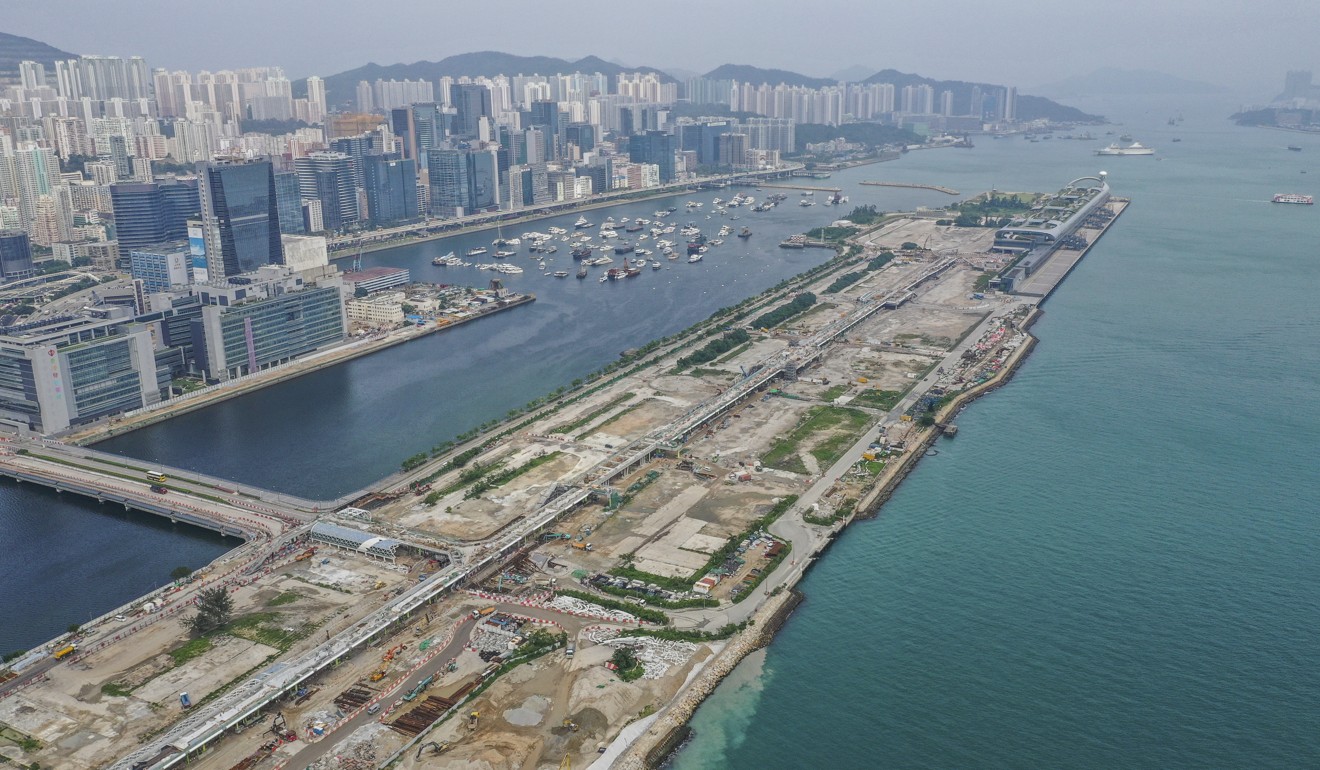
Amid protest violence and dire warnings for Hong Kong’s economy, mainland property investors provide some hope
- Behind the – deservedly – gloomy headlines about the economy, mainlanders remain bullish on Hong Kong. This is especially true of office property around Central, and suggests the city is still crucial to China’s plans
The Hang Seng Index, the main gauge of the world’s fifth-largest stock exchange by market capitalisation, has already fallen 14.5 per cent since early May, one of the world’s worst-performing equity markets.
Yet, not all investors are put off by the city’s tumbling share prices. Traders on the mainland have turned positively bullish. According to data from Bloomberg, Chinese investors have added to their holdings of Hong Kong stocks for 15 straight weeks, lured by cheaper valuations and signs that the market is oversold.
The slowdown in investment activity stemmed mainly from the escalation of the trade war and, just as importantly, the deceleration in growth in China.
Yet, while mainland outbound real estate investment continues to fall due to tighter capital controls, Hong Kong’s position as the favoured destination for Chinese property investment has been bolstered by the diminishing appeal of Britain and the US due to the risks associated with Brexit and the trade war.
According to a report published by real estate adviser Cushman & Wakefield earlier this month, Hong Kong accounted for more than 60 per cent of Chinese outbound real estate investment in the first half of this year, on a par with the share for the whole of 2018.
How Shanghai’s property market is bucking the trend and thriving
America, which was the second-most popular destination for Chinese cross-border transactions last year, accounted for only 15 per cent of mainland investment overseas, five per cent less than Australia’s share in the first half of this year.
Indeed, not only is Hong Kong attracting the lion’s share of Chinese outbound investment, mainland buyers are showing a preference for development sites – which carry greater risks, are highly capital intensive and take much longer to generate cash flow – as opposed to standing assets.

JLL, another real estate adviser, noted that mainland developers “remain optimistic on [Hong Kong’s] housing market over the medium-to-long-term”, having acquired most residential sites sold by the government this year.
Chinese property investors’ focus on Hong Kong, although accentuated by increased risks in the US and Britain, is a function of the unique role the city plays in China’s economy, serving as a conduit to the rest of the world, conveying trade and investment flows both ways.
Hong Kong is irreplaceable. That’s why the PLA hasn’t rolled in yet
Hong Kong’s rule of law and fundamental freedoms – the crux of the current conflict between the protesters and the Beijing-backed government – underpin its safe-haven status, which remains vital to Chinese companies and banks.
In the real estate sector, Hong Kong’s importance to China is most apparent in the office market, particularly in the Central district, where occupancy costs remain the highest globally, partly because of the huge influx of mainland firms over the past several years.
Hong Kong’s property investors may seek safer, cheaper cities
Chinese companies, which have been willing to pay above market rental rates to be based in Hong Kong’s prestigious Central business district, accounted for half of the entire leasing activity in the city’s office market between March 2016 and March 2019, data from property adviser CBRE shows.
What is more, financial firms comprised more than half of the demand from mainland companies, with the bulk of Chinese banking and finance tenants taking up space in greater Central, which includes the Admiralty and Sheung Wan districts.
To be sure, a softening in demand from mainland companies over the past several quarters has put downward pressure on rents in core districts. However, “the trend of [mainland] corporates establishing and leveraging on the prestige of a Central office address is likely to continue” as the Greater Bay Area initiative gathers steam, JLL notes.
Of course, all this presupposes that Hong Kong is able to maintain its position as a global financial hub. Given the severity of the political crisis, and the threat it poses to the city’s economy and markets, this is by no means assured.
Yet, the fact that mainland companies and investors would pay a heavy price if the city were to lose its special status provides a strong case for optimism. China’s love affair with Hong Kong real estate is likely to endure.
Nicholas Spiro is a partner at Lauressa Advisory

